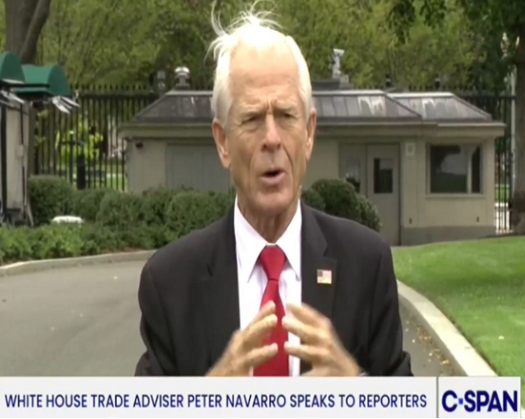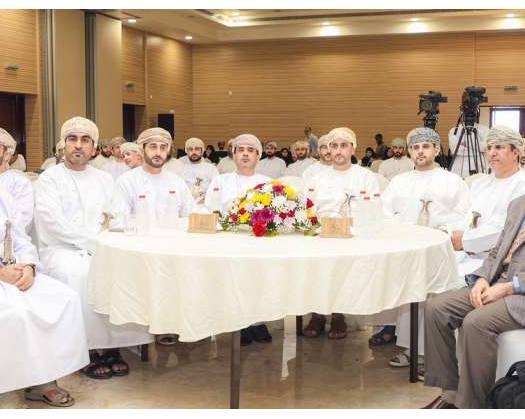Washington, D.C.: In what may be characterized as one of the most severe criticisms of India concerning its acquisition of Russian oil, White House Trade Adviser Peter Navarro has accused India of "perpetuating" the Ukraine conflict through its purchase of discounted Russian crude oil.
Navarro alleged that India is functioning as a "laundromat for the Kremlin," asserting that India's actions are facilitating Russia's ability to fund its military operations in Ukraine, while New Delhi reaps financial benefits from these transactions.
"India does not seem to acknowledge its role in the bloodshed... It is aligning itself with Xi Jinping (the President of China). The country does not require the (Russian) oil. It is engaged in a scheme of refining profiteering. It serves as a laundromat for the Kremlin. I hold great admiration for India; Modi is a commendable leader. However, I implore India to reconsider its role in the global economy. The actions being taken presently do not foster peace; they merely prolong the conflict," stated the White House trade advisor.
Notably, these remarks follow assertions made by Nikki Haley, the former U.S. Ambassador to the United Nations, who has underscored the significance of regarding India as a "valued free and democratic partner" in the worldwide endeavor to counter China's expanding influence. In her editorial for Newsweek, she cautioned that undermining the 25-year momentum in U.S.-India relations would constitute a "strategic disaster."
She urged Donald Trump to "reverse the downward spiral" and engage in direct discussions with Prime Minister Modi, asserting, "The sooner, the better."
Haley contends that India is the sole nation capable of acting as a counterbalance to Chinese supremacy in Asia, rendering it vital for the United States to sustain a robust partnership with India.
Furthermore, esteemed economist Jeffrey Sachs has vocally criticized the U.S. administration's decision to impose substantial tariffs on India, describing them as "bizarre" and "extremely detrimental to U.S. foreign policy interests."
In a recent interview with ANI, Sachs expressed his apprehensions that these tariffs would undermine years of efforts to enhance U.S.-India relations. He characterized the tariffs as "not a strategy, but sabotage," and labeled them the "most foolish tactical move in U.S. foreign policy," a decision which has galvanized the BRICS nations like never before.
Trump announced a 25 percent tariff on Indian goods in July, despite the existence of expectations for an interim U.S.-India trade agreement that could have mitigated the imposition of elevated tariffs. Shortly thereafter, he enacted an additional 25 percent tariff, raising the total to 50 percent, citing India's ongoing imports of Russian oil.
Furthermore, Navarro contended that India does not require Russian oil, highlighting that prior to the invasion of Ukraine in February 2022, India sourced less than one percent of its oil from Russia, while currently, this figure has risen to approximately 35-40 percent.
"Before Russia's invasion of Ukraine in February 2022, India hardly purchased any Russian oil... The current claim that they need Russian oil now that this percentage has escalated to 30-35% is absurd... Russian refiners have partnered with Italian refiners in a scheme where they acquire inexpensive Russian crude at a discount. They then produce refined products, which are sold at premium prices in Europe, Africa, and Asia," he remarked.
In the meantime, Russian President Vladimir Putin mentioned during a press conference with Trump in Alaska on August 16 that trade between the two countries has risen by 20 percent since Trump's return to the presidency.
Navarro also pointed out that the US has imposed a 50% tariff on Indian goods, effective August 27, due to India's ongoing acquisition of Russian oil amidst geopolitical tensions stemming from the Russia-Ukraine conflict. This total tariff rate includes a baseline 10% duty, a 25% reciprocal tariff, and an additional 25% tariff.
He characterized India's trade barriers as "higher tariffs, Maharaja tariffs, and elevated non-tariff barriers," asserting that these factors have led to a "massive" trade deficit for the US that "negatively impacts American workers" and "adversely affects American businesses."
"In India, a 25% tariff was implemented due to unfair trade practices. Another 25% was added because of Russian oil... They impose higher tariffs, which I refer to as Maharaja tariffs... We face a significant trade deficit with them. This situation negatively impacts American workers and businesses. Furthermore, they utilize the revenue generated from selling us goods to purchase Russian oil, which is then refined, allowing them to profit substantially. The Russians subsequently use these funds to enhance their military capabilities and harm Ukrainians. Consequently, American taxpayers are compelled to provide increased military aid to Ukraine. This situation is outrageous, and President Trump has a clear understanding of this complex scenario. Ultimately, the path to peace may very well lead through New Delhi," Navarro stated.
Navarro's remarks follow External Affairs Minister S. Jaishankar's response to American officials' criticisms regarding India's energy relationship with Russia, where he noted that the US had previously requested New Delhi's assistance in stabilizing global energy markets by purchasing Russian oil.
Jaishankar challenged the US rationale for imposing tariffs on India, especially considering that China is the largest buyer of Russian oil and the EU is the top purchaser of LNG.
"We do not rank as the largest buyers of Russian oil; that title belongs to China. We are not the leading purchasers of LNG; that distinction goes to the European Union. We are not the nation experiencing the most significant trade increase with Russia since 2022; there are other countries to the South. For years, the Americans have encouraged us to take steps to stabilize the global energy market, including sourcing oil from Russia. Notably, we also import oil from the US, and that volume has risen. Therefore, we find the logic behind the argument you (the media) referenced quite perplexing..." Jaishankar responded to a question.
In the meantime, Xu Feihong, the Chinese Ambassador to India, has voiced his disapproval of the US's decision to impose 50% tariffs on Indian products, cautioning that "silence or compromise only emboldens the bully." He stressed that China will steadfastly support India in maintaining the multilateral trading system centered around the World Trade Organisation (WTO).
Xu condemned the US for leveraging tariffs as a negotiating tool, despite having significantly benefited from free trade in the past. He pointed out that tariff and trade wars are undermining the global economic and trade framework, allowing power politics and a law-of-the-jungle mentality to dominate.
Xu highlighted the necessity for China and India to enhance their collaboration to assist developing nations in overcoming challenges and to uphold international fairness and justice.
The Ministry of External Affairs has taken a resolute position, asserting that India will undertake "all actions necessary to protect its national interests," in response to US efforts to pressure New Delhi.
"In an official statement, the MEA remarked, "The United States has recently targeted India's oil imports from Russia. We have already clarified our stance on these matters, including the fact that our imports are determined by market dynamics and aimed at ensuring the energy security of 1.4 billion people in India."
"It is thus exceedingly unfortunate that the US has opted to impose additional tariffs on India for actions that numerous other countries are also pursuing in their own national interests," the statement concluded.








